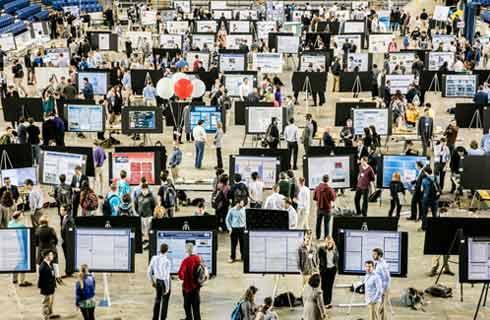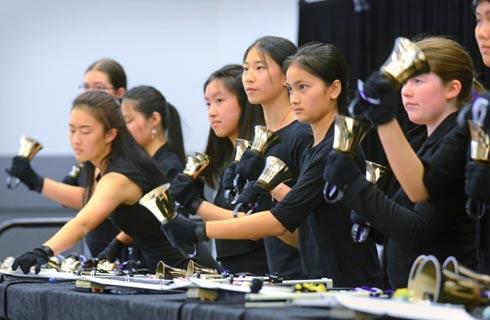电子工程技术文凭
Diploma in Electronics Engineering Technology

学历文凭
Bachelor Degree

专业院系
New Brunswick Community College

开学时间

课程时长

课程学费

国际学生入学条件
IDP—雅思考试联合主办方

雅思考试总分
6.0
- 雅思总分:6
- 托福网考总分:80
- 托福笔试总分:160
- 其他语言考试:PTE Pearson Test of English (Academic) Minimum score of 65 with no subject test less than 60, Duolingo English Test Minimum score of 100 out of 160 with no subject test score less than 90
CRICOS代码:
申请截止日期: 请与IDP联系 以获取详细信息。
课程简介
The Electronics Engineering Technology diploma program is designed to provide students with the knowledge and practical skills required to work as a technologist in the electronics field. This program offers a broad range of skill-based training in fundamental areas such as math, physical science, electrical circuits, critical thinking, problem-solving, research, communication, and teamwork as well as technical skills such as selecting, design, installation, testing, operation, maintenance, analyzing, troubleshooting, and maintaining electrical and support systems.<br>Throughout the program, students will learn and apply the knowledge and skills in a real, practical, and simulated environment through lectures, extensive hands-on activities, and individual or team projects.
相关申请
 预科
预科 奖学金
奖学金 实习机会
实习机会 在校学习
在校学习 跨境学习
跨境学习 校园授课-线上开始
校园授课-线上开始 在线/远程学习
在线/远程学习
开学时间&学费
学费信息仅供参考,请与IDP联系以获取详细信息
| 开学时间 | 时长 | 学费 | 地点 |
|---|
关于新不伦瑞克社区学院

新不伦瑞克社区学院提供优质的教育课程,旨在帮助学生实现职业梦想。学院分布在加拿大新不伦瑞克省的六个校区,提供 90 多个涵盖各个领域的全日制课程。六个校区分布在新不伦瑞克省的弗雷德里克顿、米拉米奇、蒙克顿、圣约翰、圣安德鲁斯和伍德斯托克。每个校区都配备了必要的设施和支持服务,以确保所有学生--无论他们选择哪个课程--都能获得最好的教育。新不伦瑞克省是一个理想的学习之地。这里热情友好,交通便利,可轻松前往全国各大城市。此外,这里自然风光秀丽--学生们一定会喜欢在闲暇时探索附近的海洋、步道和湖泊。学院提供的学习课程多种多样,但每个课程都由充满干劲的教师授课,他们致力于帮助学生成为最好的自己。理论学习与实践学习之间取得了良好的平衡。这得益于学院与当地企业的良好合作关系。学生通常有机会参与合作伙伴的实际项目,在学习的同时对社区产生直接影响。这将带来绝佳的社交机会,对未来的职业发展大有裨益。NBCC 凭借其优质的教学、一流的设施以及与社区的紧密联系,成为通往未来成功的真正门户。在 NBCC 学习期间,学生将获得训练有素、热情友好的教职员工的支持。无论学生需要什么,他们都能找到一支随时准备提供建议和指导的团队,让学生能够全身心投入学习。
本校相关课程
其他相关课程

材料科学与工程哲学博士-电子,光学和磁性材料
 北卡罗莱纳州立大学罗利分校
北卡罗莱纳州立大学罗利分校学历文凭
Ph.D.
开学日期
课程费用总额


Certificate in Maintenance and Light Repair
 南西雅图社区学院
南西雅图社区学院学历文凭
Advanced Certificate
开学日期
课程费用总额


Certificate in Electronics Technician
 希尔斯伯勒社区学院
希尔斯伯勒社区学院学历文凭
Advanced Certificate
开学日期
课程费用总额


VLSI和微电子学硕士
 伊利诺伊理工学院
伊利诺伊理工学院泰晤士高等教育世界大学排名:310
学历文凭
Masters Degree
开学日期
课程费用总额


Certificate of Achievement in Automotive Machining and Engine Repair Technology
 德安扎学院
德安扎学院学历文凭
Advanced Certificate
开学日期
课程费用总额


Master of Science in Electrical and Computer Engineering - Photonics and Electronic Devices
 加州大学圣克鲁斯分校
加州大学圣克鲁斯分校学历文凭
Masters Degree
开学日期
课程费用总额










 加拿大
加拿大





